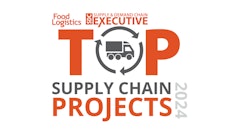Analyst firm identifies five key elements to prevent outsourcing failure
Stamford, CN — August 4, 2004 — Eighty percent of organizations will outsource at least one function by 2005, according to research by META Group Inc., a provider of information technology (IT) research, advisory services and strategic consulting. While 70 percent of that group will renew their outsourcing contracts, many will reduce both the scope and the duration of the original agreement.
"Vendor performance may factor into the decision to cut back on existing outsourcing arrangements, yet the trend is really driven by the need for organizations to regain control of their [information technology (IT)] strategy and architecture," said Dane Anderson, a senior research analyst at META Group. "The growing popularity of asset-leasing arrangements and the increased focus on business and IT alignment are also playing important roles in the decision to curtail outsourcing engagements."
Despite the reductions in scope and duration of outsourcing, META Group believes that outsourcing will continue to grow as a viable option for organizations seeking to remain competitive during the next decade. However, according to the firm, companies will not realize a return on their investment (ROI) unless significant attention is paid to five factors at the outset of any outsourcing relationship:
1. Expectations: Enter into the outsourcing agreement with the correct expectations.
2. Objectives: Articulate the primary objectives of outsourcing and the risks associated with various options.
3. Vendor Selection: Select a capable outsourcing vendor who is motivated to meet primary objectives.
4. Service-level Agreements: Negotiate contracts with service levels that align with primary objectives and equitable pricing (ideally, with elements of value pricing).
5. Management: Implement a strong team to manage the outsourcing vendor throughout the contract.
Companies must also understand that not all outsourcing relationships are created equal. According to META Group's "2004 Outsourcing Pricing Guide," the five functions traditionally outsourced — mainframe computing, midrange computing, desktop services, networking (voice and/or data), and help desk — differ significantly in terms of contract complexity, service parameters and cost structures. For that reason, organizations should research market pricing for specific steady-state operations prior to entering any outsourcing relationship.
"Although outsourcing is clearly a strategic decision, the tactical and operational implementation of an outsourcing agreement often neglects many of the fundamental elements required for success," said Anderson. "By leveraging the framework established by these five critical factors and understanding pricing benchmarks, IT organizations can create the structure and foundation for a flexible, cost-effective and successful outsourcing relationship."
The information presented in the "Outsourcing Pricing Guide" is based on META Group research in the areas of outsourcing and price benchmarking. Each profile provides an overview of what to expect when considering an outsourcing arrangement in that area, including basic services and pricing.

























